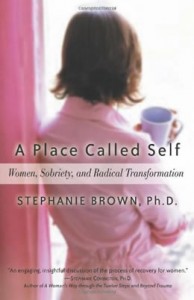 “Phil Valentine’s call to walk the Appalachian Trail is a vivid example of moving beyond recovery FROM life-threatening illnesses as a means of recovering TO a life of extraordinary possibilities. Thousands of us who have shared the challenges and unexpected gifts from such recovery journeys will be walking in spirit with him.” Bill White
“Phil Valentine’s call to walk the Appalachian Trail is a vivid example of moving beyond recovery FROM life-threatening illnesses as a means of recovering TO a life of extraordinary possibilities. Thousands of us who have shared the challenges and unexpected gifts from such recovery journeys will be walking in spirit with him.” Bill White
A great Recovery Story starts soon, on 19th March 2015. Well, the Story is already happening, but a new phase starts on that date. Phil Valentine, Executive Director of Connecticut Community for Addiction Recovery (CCAR) begins his amazing walk of the Appalachian Trail.
Phil is already a great example of what one can achieve in recovery. But now he takes his journey to another level. We’ll be following Phil from time-to-time on his journey and I strongly encourage you to follow him directly via: https://twitter.com/pvalentine59 and https://instagram.com/pvalentine59/.



 ‘Recovery has held so many surprises for me. Some good. Some bad. I didn’t know I could hurt so much. But I also didn’t know I could love so much and be so loved. I had no idea that recovery was also learning how to be in intimate relationships, learning how to have close, wonderful friends. Then there’s my marriage. My husband and I have developed a rich life together. And get this – I really like myself now. Learning about who I am and accepting me, that’s been the hardest part of recovery – and the best. I wouldn’t trade this path for anything in the world.’ Anne, Recoveree
‘Recovery has held so many surprises for me. Some good. Some bad. I didn’t know I could hurt so much. But I also didn’t know I could love so much and be so loved. I had no idea that recovery was also learning how to be in intimate relationships, learning how to have close, wonderful friends. Then there’s my marriage. My husband and I have developed a rich life together. And get this – I really like myself now. Learning about who I am and accepting me, that’s been the hardest part of recovery – and the best. I wouldn’t trade this path for anything in the world.’ Anne, Recoveree

